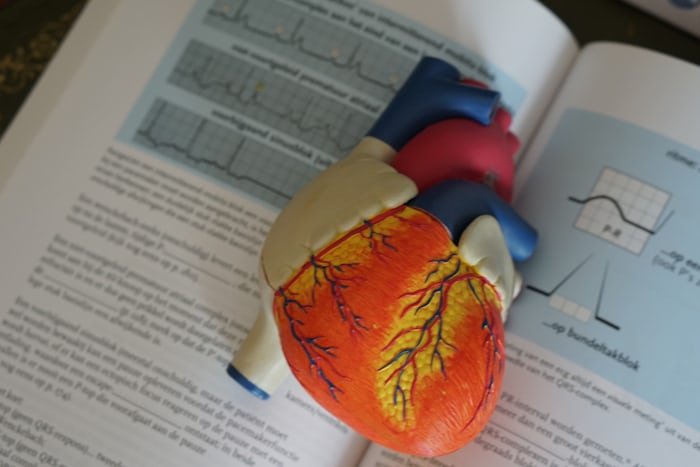Are you dreaming of studying Physiology at a university in Nigeria? You’re not alone.
Many students are passionate about understanding how the human body works, from the beating of the heart to the firing of nerve signals.
Physiology is a fascinating and essential course in the medical sciences.
But before you can be admitted to study Physiology, you must meet a key requirement: the correct subject combination.
In this blog post, we will explain everything you need to know about the subject combination for Physiology, including what to choose in WAEC, NECO, JAMB, and even Direct Entry.
What is Physiology?
Physiology is a branch of science that deals with how the human body functions. It focuses on the systems, organs, tissues, and cells in the body and how they work together to keep us alive and healthy.
A Physiology degree is often offered as part of the Faculty of Basic Medical Sciences in Nigerian universities. It can lead to careers in healthcare, medical research, pharmaceuticals, education, and more.
Why Subject Combination Matters for Physiology
Universities in Nigeria have specific admission requirements for each course.
If you select the wrong subject combination in your WAEC, NECO, or JAMB, you may be denied admission, no matter how high your scores are.
Subject combination refers to the specific group of subjects you must pass to study a particular course like Physiology.
Let’s break it down for each exam level.
WAEC/NECO Subject Combination for Physiology
In your WAEC, NECO, or GCE, you are expected to have at least five (5) credit passes, including core science subjects.
Required Subjects:
- English Language – Compulsory for all courses in Nigeria.
- Mathematics – Often required for science-related courses.
- Biology – Most important subject for Physiology.
- Chemistry – A core subject for understanding body reactions.
- Physics – Explains concepts like nerve signals, pressure, and movement.
Optional but Useful:
- Agricultural Science – Helpful but not usually required.
- Further Mathematics – Can strengthen your science background.
- Health Science – Related to your future field.
Note: Most universities require at least a Credit (C6) in these five core subjects.
JAMB Subject Combination for Physiology
For your JAMB UTME, you are to select four subjects, but not just any four.
The right combination will ensure you are eligible to apply for Physiology in your chosen university.
Correct JAMB Subjects for Physiology:
- Use of English – Mandatory for all JAMB candidates.
- Biology – The most relevant subject.
- Chemistry – A key subject in medicine and physiology.
- Physics – Provides foundational understanding of bodily systems.
Mnemonic tip: Think “BCP + English” = Biology, Chemistry, Physics, and English.
Avoid wrong combinations like:
- English, Biology, Government, Economics
- English, Chemistry, Agricultural Science, Geography
These won’t qualify you for Physiology.
Direct Entry Requirements for Physiology
If you’re applying via Direct Entry (DE) instead of JAMB UTME, you must already have A-level qualifications or an ND/NCE/HND in a related field.
Direct Entry Qualifications:
- Two (2) A-Level passes in Biology/Zoology and Chemistry or Physics.
- ND or HND in Science Laboratory Technology, Physiology, Anatomy, or related field with upper credit.
Make sure your transcripts are ready and acceptable to your chosen school.
Top Nigerian Universities Offering Physiology
Many federal, state, and private universities offer Physiology. Each may have slight differences in admission requirements, but they generally follow the same subject guidelines.
Here are some popular ones:
| University | Location | Admission via UTME/DE |
|---|---|---|
| University of Lagos (UNILAG) | Lagos | UTME & DE |
| University of Ibadan (UI) | Oyo | UTME & DE |
| Ahmadu Bello University (ABU) | Zaria | UTME & DE |
| University of Nigeria (UNN) | Nsukka | UTME & DE |
| Lagos State University (LASU) | Lagos | UTME |
| Bowen University | Iwo | UTME & DE |
Always check the latest JAMB brochure or your university’s admission portal for specific requirements.
️ Career Opportunities with a Physiology Degree
Once you’ve completed your Physiology degree, you’re not limited to one path. Here are some careers you can pursue:
- Clinical Physiologist
- Biomedical Scientist
- Medical Researcher
- Lecturer or Educator
- Pharmaceutical Representative
- Public Health Analyst
- Occupational Therapist (with further training)
- Medical Laboratory Assistant
You can also go further to study Medicine, Physiotherapy, or Nursing through graduate entry if you wish to transition.
Tips to Prepare for Physiology Admission
To boost your chances of gaining admission:
Study Hard
Focus on Biology, Chemistry, and Physics. Attend tutorials or use online platforms like YouTube, Myschool.ng, or Khan Academy.
Register Early
Register early for WAEC, NECO, and JAMB. Don’t wait till the deadline.
Practice JAMB Past Questions
JAMB usually repeats questions. Practice using apps or booklets with past UTME questions.
Apply to Multiple Schools
Don’t put all your hope in one school. Apply to 2–3 universities and consider less competitive ones.
Get Guidance
Talk to school counselors or use forums like Nairaland or Myschool for updates.
Frequently Asked Questions (FAQ)
1. Can I study Physiology without Physics in JAMB?
No. Physics is required along with Biology and Chemistry for JAMB.
2. Is Mathematics compulsory for Physiology in WAEC?
Yes. Most schools require at least a credit in Mathematics.
3. Can I switch from Physiology to Medicine later?
Yes, but it depends on your performance and your university’s policy. Some universities allow transfer after 100 level.
4. What is the cut-off mark for Physiology in JAMB?
It varies by university, but most federal universities require at least 200–220. Private schools may accept lower.
